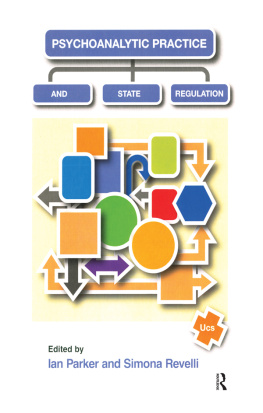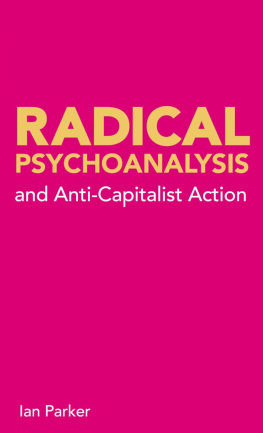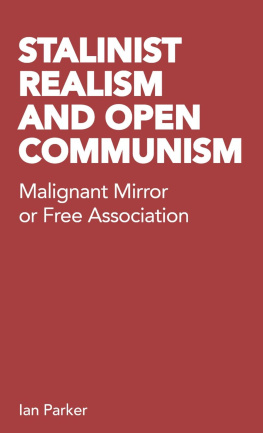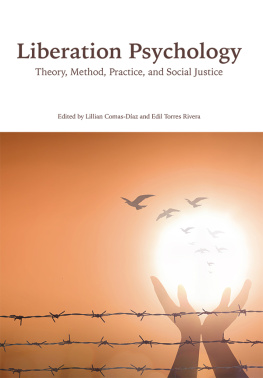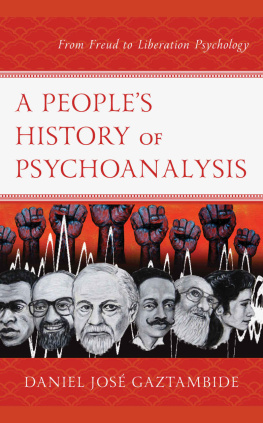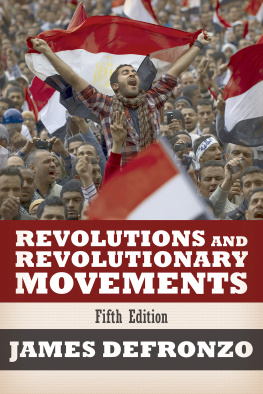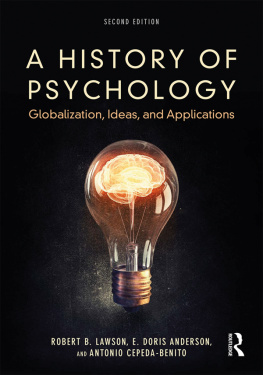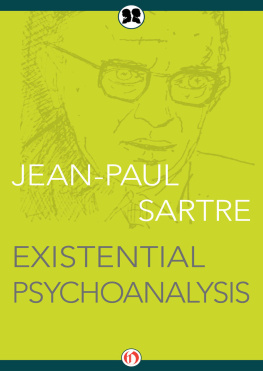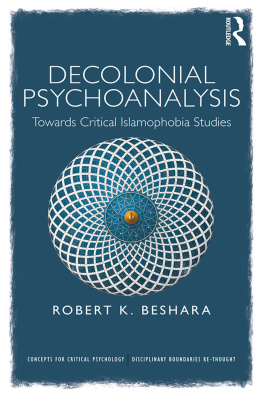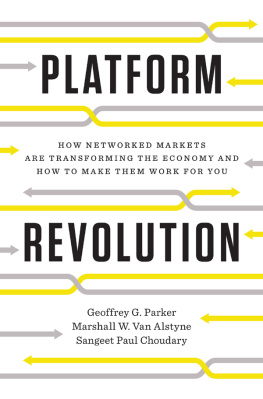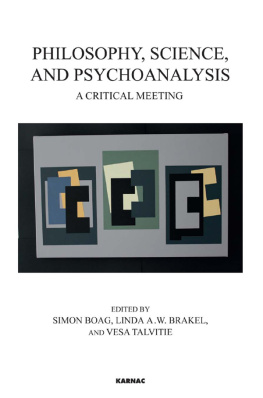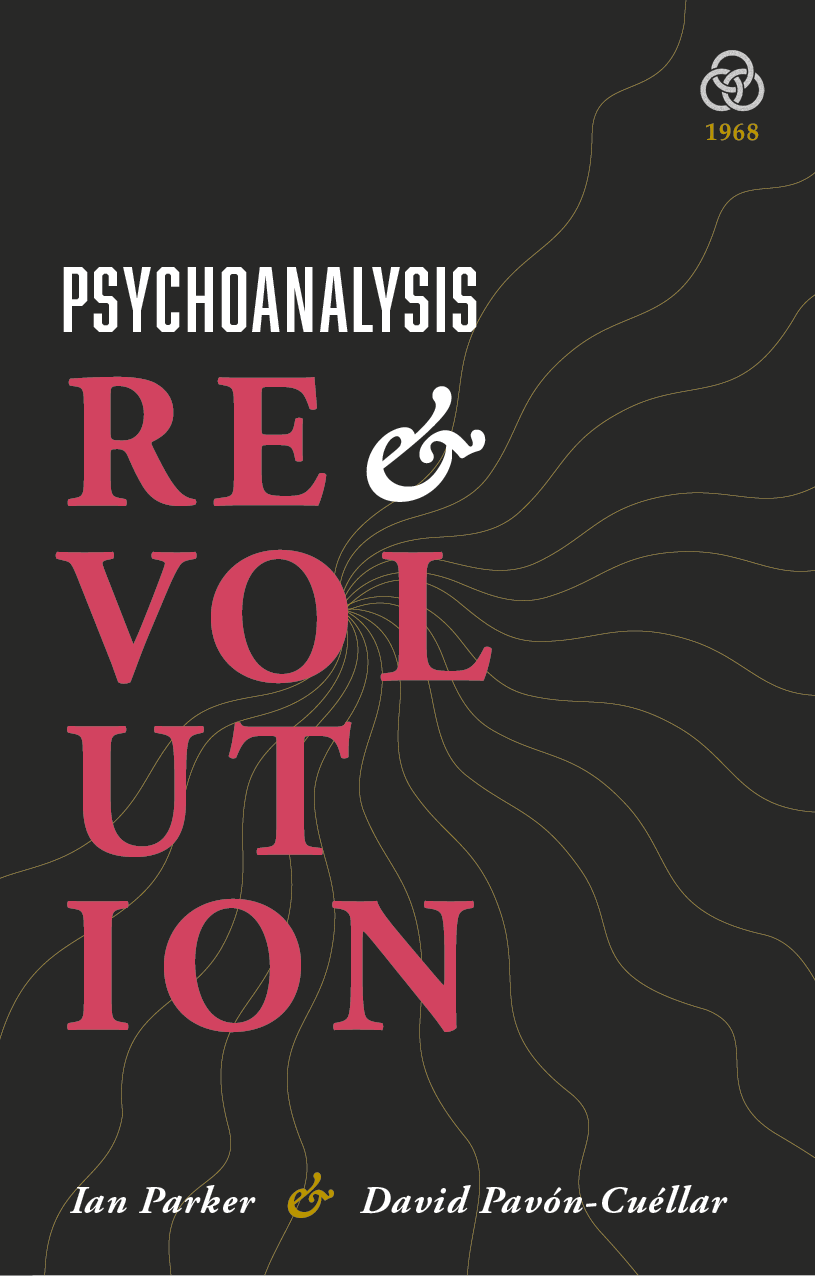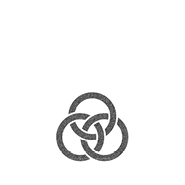PSYCHOANALYSIS
AND
REVOLUTION
Critical Psychology
for Liberation Movements
Ian Parker
and
David Pavn-Cullar
1968 Press
First published 2021 by 1968 Press
Copyright Ian Parker and David Pavn-Cullar
ISBN: 978-1-9196019-0-8 (pbk)
ISBN: 978-1-9196019-1-5 (ebk)
1968 Press
London
CONTENTS
i
PREFACE TO
THE ENGLISH-
LANGUAGE
EDITION
My writing this preface for Psychoanalysis and Revolution is simultaneously the preface of my own journey as a Black feminist psychoanalytic activist. Very early in my forty years of Black queer feminist activism, I gravitated to psychoanalysis because I desperately needed a way of understanding my own and others subjective responses to intersectional racist patriarchal capitalism. However, bringing psychoanalysis and revolution together does not make for an easy life because of a constructed binary where you are meant to be in the psychoanalytic camp or the revolutionary camp. This binary has never made sense to me in my activist work for the radical transformation of the existing orders of racist patriarchal capitalism.
The questions, contradictions, and tensions that Ian Parker and David Pavn-Cullar grapple with in this book are the frictions I grapple with in sustaining intersectional anti-capitalist hypervigilance of psychoanalysis and ideas of liberation. Just as Parker and Pavn-Cullar argue, I have learned to inhabit these tensions as a site of productive subversion. For example, I am habituated to the tension of feeling alienated within liberation
ii
PSYCHOANALYSIS AND REVOLUTION
movements and psychoanalytic communities of practice that both use discourses of counter-alienation. A contradictory position of relying on frameworks of anti-alienation, whilst feeling alienated within and by them. However, in agreement with Parker and Pavn- Cullar, I believe the impossibility of psychoanalysis as revolution is its possibilityindeed its imperative.
Those of us, working for liberation from intersectional oppression, know that it is not enough to tackle external social structures of domination without tackling our subjective structures of domination. The matrix of domination is at once inside and outside of me, you, us. Revolution to overthrow the matrix of domination rests on holding an at once insider/outsider analysis. What is required is critical psychology for liberation movements. To be clear, critical psychology for liberation movements, where the for functions as a bolt on, or an addition to, will fail because any bolt on is repetition of division and all movements for liberation contest divisions. So, the task, and it is the task of this book, is of finding ways to think, feel and work with the psychic life of power that are manifest and repeated within the mission for revolution. Movements of liberation need to know what they want liberation from.
The task of breaking chains that can be seen and are tangible is only a part or dimension of the task. We are all bound by invisible and intangible chains, which psychoanalytic jargon calls the unconscious. The question that Parker and Pavn-Cullar work with is: how does an implicated unconscious that is structured by the particular languages we learn from the world in which we live form a revolutionary subjectivity, or revolutionary subject? The question is crucial to solidarity for revolution. All movements for liberation
iii
PREFACE TO THE ENGLISH-LANGUAGE EDITION
rest on a sense of collective solidarity. However, as the Combahee River Collective teaches us, the effectiveness or success of any manifesto of revolution correlates with effectiveness or success of relating across intersectional differences as equals. For example, the effectiveness or success of the Black feminist revolutionary anti- border manifesto of intersectionality would be gravely constrained if it were only applied to visible, tangible structural vectors of oppression.
The effectiveness of Black feminist collective solidarity correlates with the extent to which I, you, we uncover and transform our internal borders or the anti-intersectional in each of us. Our capacity for subjective hospitality across our differences will determine the extent and shape of revolution and liberation. Whether it is in the context of collective meetings for revolution, clinical settings of the therapy room, the context of a helpline call, a protest march or vigil, we must find ways of exploring and transforming power-unequal dynamics between us to transform unequal power dynamics structurally. The Black queer feminist and revolutionary Audre Lorde tells us that the focus of revolutionary change is never just the oppressive situations we want to change, but is also the oppressors tactics and relationships which are planted deep within all of us. In short, we cannot rely on shared goals or contexts of revolutionary activism to facilitate excruciatingly uncomfortable scrutiny of power, privilege, and position functioning subjectively between us.


